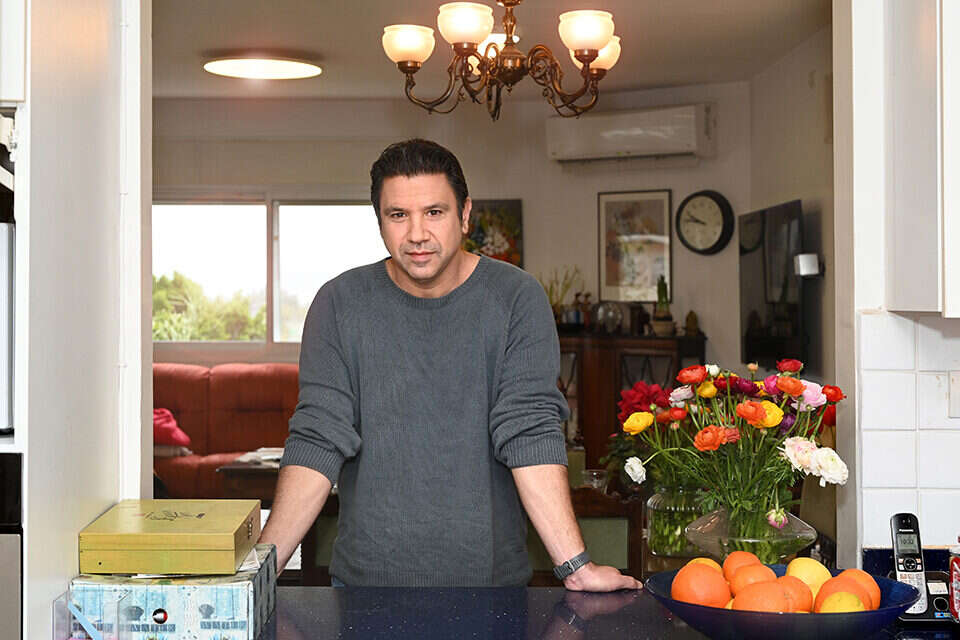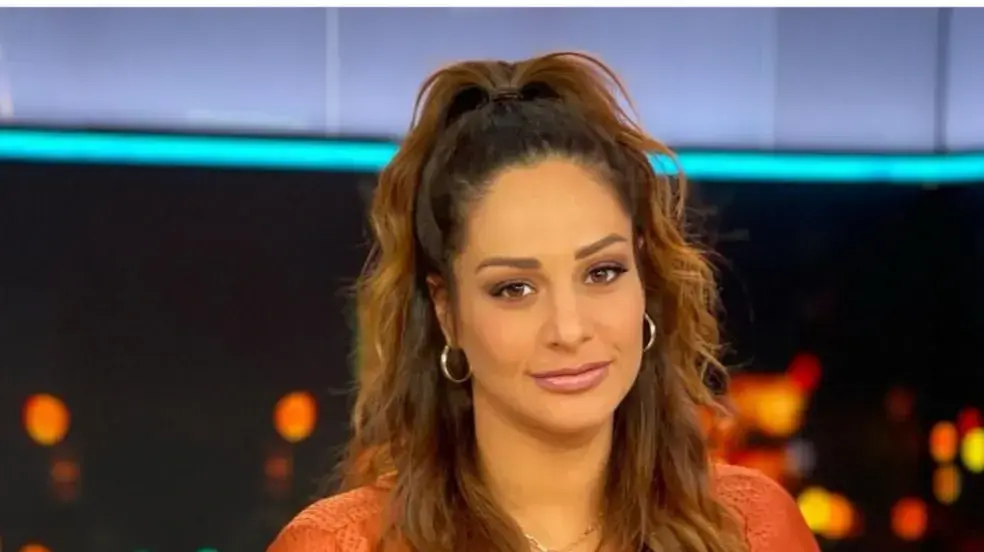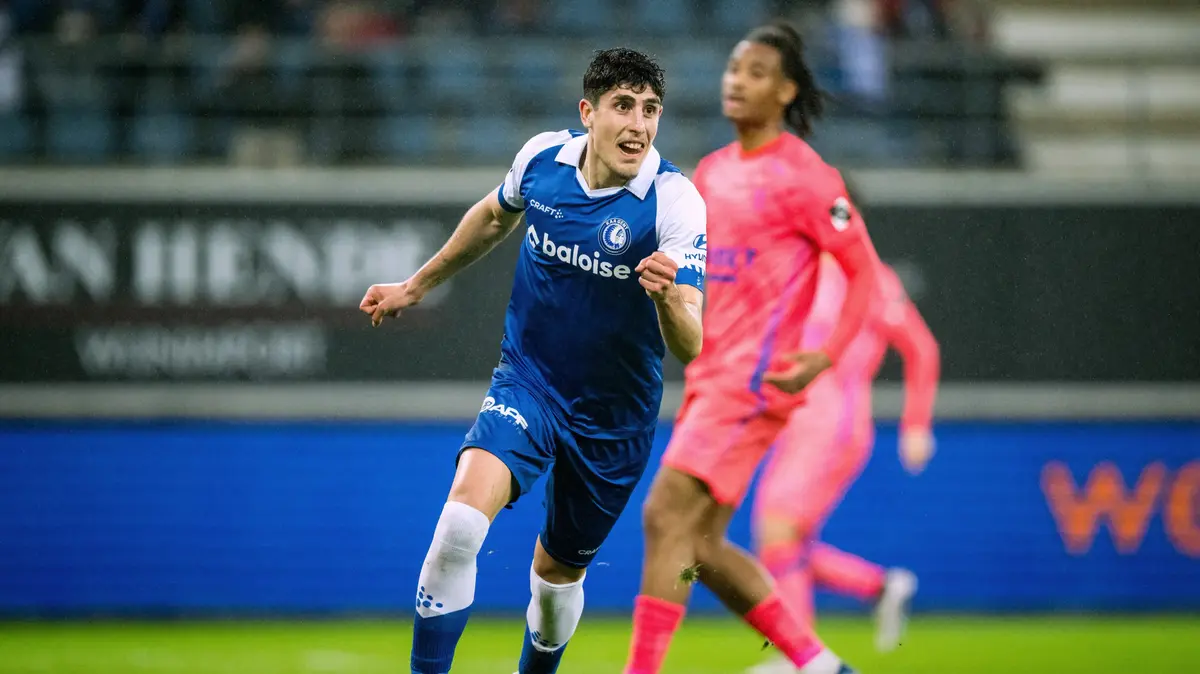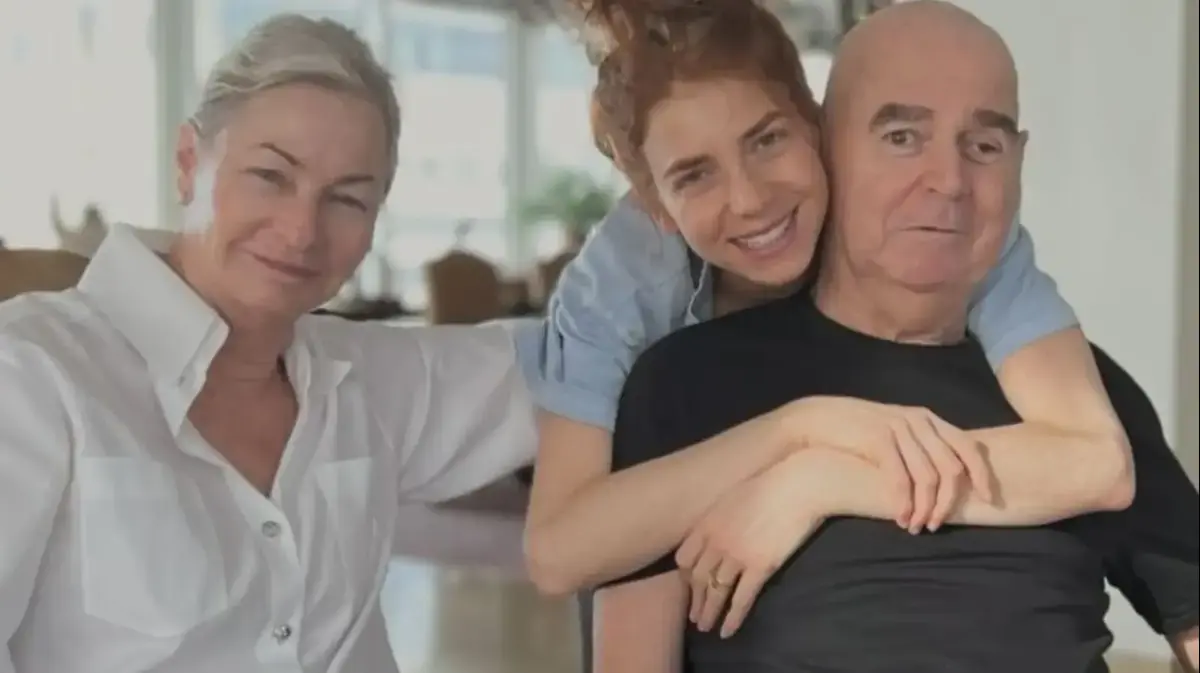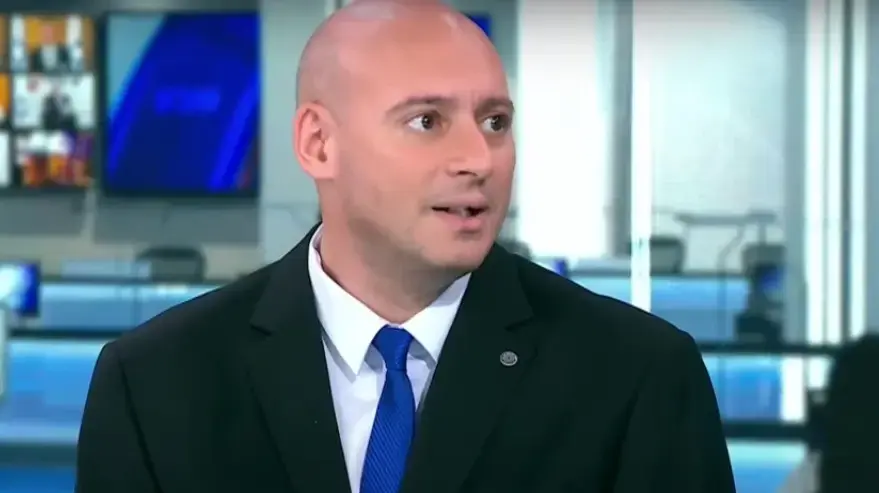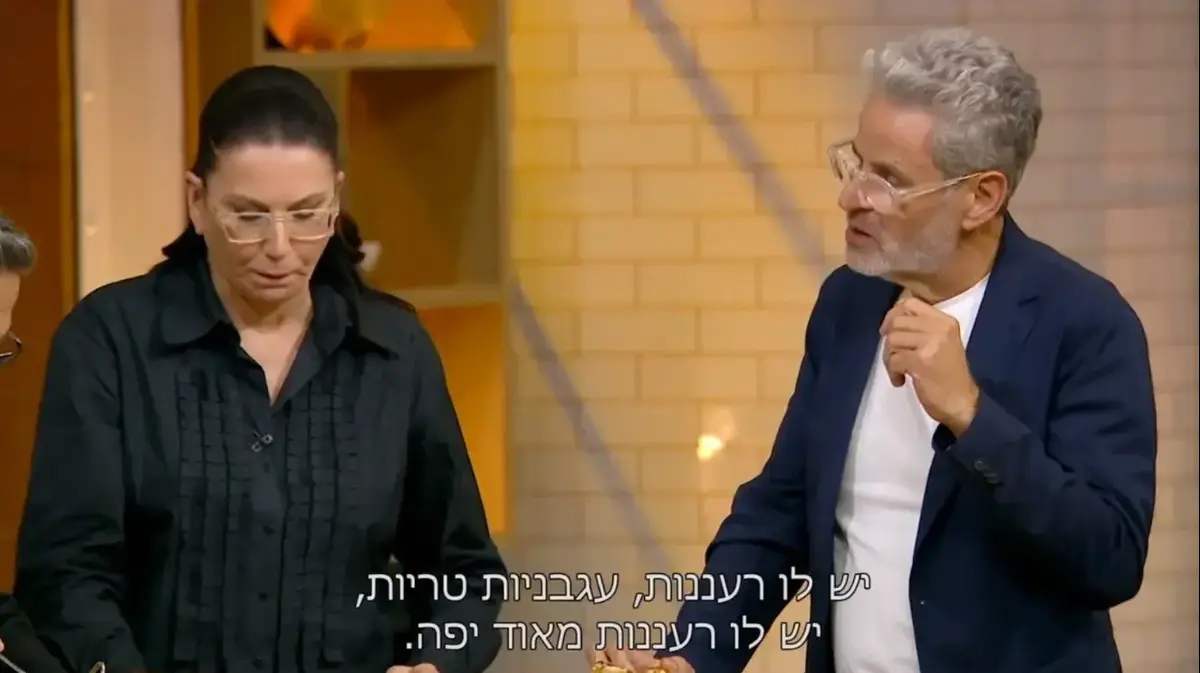When was the last time you visited Tel Adsim?
"A long time ago. Every time we go to the north, I feel an urgent need to show my children where I grew up, but they are not interested. The house where I lived is still there, but the memories are crumbling, childhood is crumbling and becoming fragments of life. Almost none of my friends are There, my grandmother is no longer there, the connection to the place is less strong.
"I had wonderful years there, and I really like Tel Adashim, I lived there until I was 14. Growing up in a settlement, on the outskirts, this means that at the age of 11 I get on my father's tractor, Yoni, and he lets me drive. My father is originally a farmer. We have a dairy farm, cotton fields, watermelons, tomatoes. I grew up with few children. We were eight children in a class, and I would often go alone to play football because there was no one to play with. This also meant going to listen to 'songs and goals' in a field of corn. There are many Romance in the Jezreel Valley. We felt very special. We had an aura, because Rafoul was ours and he was the Chief of Staff.
Tel Adsim was the center of the world for me.
I didn't think there was life outside Tel Lent, at least in Afula."
"My home is here."
Assenheim, photo: Efrat Eshel
When was the last time you fulfilled a dream?
"When my series about Pollard was sold abroad, to Canal Plus in France.
I received a call informing me that the French were enthusiastic and bought the series.
My dream was that materials I make in Israel would cross the ocean.
It hasn't happened yet, but we crossed the sea, and it's a dream come true.
The dream is that it will resonate outside of Israel to reach other places like Paris, Brussels and maybe in the future Washington and Missouri."
Would you also like to live abroad, somewhere?
"My home is here. If I have to, I will live in the USA, for a limited period - I will not be American.
The house is here.
This is a country we fought for, our parents fought for, generations fought for.
Why do we give up?
I'm very Zionist, I grew up on the lap of Raffle."
When was the last time you learned a formative life lesson?
"When I was 11 or 12 years old. I wanted to be a footballer. In my own eyes, I was very successful, others did not recognize the talent. I was a midfielder in Hapoel Afula. I was a good player, and as a child I was probably better in my own eyes than in the eyes of others. At the end of the year ceremony, in Muft Hall in Afula , I was with my coach, and Elisha Levy was there and also Yehuda Amar, then a big star, and they were supposed to hand out awards to the outstanding players of the year. I was sure and convinced that I would receive an award, either an outstanding player or the fair player. I already told my friends that I made room on the shelf for the award , and I bragged about it. Then the ceremony came, and other kids got awards and I didn't get anything. I burst into tears in the hall. The coach saw that I was crying, put me on stage and gave me some kind of pen, a consolation prize that wasn't really intended for me and didn't really comfort me, and I learned a lesson: always Try to come small to events like this. Ever since I learned to lower expectations, it's something I've snorted. The message I took from there and that I pass on to my children is: come small and leave big, or just leave small, the main thing - don't brag before the fact."
Who do you dream of interviewing?
"My dream is to interview my mother, Ruthie, so maybe I'll meet her at least one more time. I miss her. She died of cancer 16 years ago. It's a very big wound. She was a very special woman - a dancer, a counselor and a teacher. Many times when I Lecturer, people from the audience come up to me and tell me that they knew her. She was an impressive type and had a great influence on me.
"My mother knew that I dreamed of serving in a patrol of the Defense Forces.
I dreamed of it when we lived in Germany, and when I came back I did a year of service in the moshavim movement, and then I went through training for a general patrol. I finished the training, but I didn't pass it, and then I automatically went to Cherry. As far as I'm concerned, I didn't fulfill my dream, and I was deeply depressed for two weeks, very - Very sad. I wasn't going to go to any other formation. Later I got a summons to 669. I didn't want to hear about it at all. On the morning of the formation to 669, my mother pulled me out of bed - and I'm already 19 - made sure I got dressed and we set off. She galloped on Route 4, on the sidelines, all the way to Palmachim. When we arrived, the guys were already crawling there on the hills, and in fact she made it so that I reached 669. You know where I would be if it weren't for her."
"I dreamed of serving in a patrol of the General Staff." Osenheim,
When was the last time you were misunderstood?
"They don't understand why I'm interviewing Bibi for a series about the Defense Forces patrol, and my answer is that it's hard for me to get journalistic advice from people in a position.
I also have a very harsh criticism of Netanyahu, regarding the crazy measures that happen here every day, but I will interview whoever I think is necessary for this series.
"It was very difficult for me to bring Netanyahu. I am not considered to be from Netanyahu's milieu at all, even the opposite. I tried to bring him to the series about Pollard and I failed, and I tried to convince him in many meetings, until I succeeded.
"I never voted for Netanyahu, I don't believe I will vote for Netanyahu, but in the context of the IDF patrol - he is part of three brothers who served in the IDF patrol, he is a bereaved brother, and not just - the bereaved brother of the one who was the commander of the unit and is considered its undisputed symbol in my eyes The general public - and is responsible for increasing its operational successes, at least the visible ones, at all times, and also - is a prime minister who launched dozens of operations of a general patrol patrol, and who continues to launch its operations today.
If I didn't approach him and interview him, I wouldn't be a journalist.
People only speak from position, and it drives me crazy.
I suggest people drink a glass of cold water or hot tea, and take a few hours off from the position.
It's even good for the facial skin."
Just asking about him?
"Especially about him, and also about Bennett. I can understand why they ask about Bibi. We are in a complicated, difficult and scary time, but there are also things that are out of position. Etti Kharif is out of position, Avi Himi, Rehabam (Gandhi) Zeevi, Ezra Navi. When he arrives Eli a story - I publish it in a big way, as I did with Navi. Gandhi? What do I care that they see him as a symbol of an entire camp? We brought seven testimonies of harassment, indecent acts and rape, so I won't publish?"
Were threats made against you that you would store the materials?
"In the Gandhi case, the family had a restraining order, and I understand them. If it was a member of my family, maybe I would also file a restraining order. I understand them completely and sympathize with their pain. They are not guilty of anything, but they were not threats. I always think about The other side, I'm tormented by the other side. This month we aired in 'Ovda' an article of mine about undercovers and the deputy commander of Unit Y, who went to prison for sexual offenses he committed, and I can't stop thinking about his wife and his six children, who are paying a heavy price for this They loathe me and think that I did the worst thing that could happen to them, and that Love did a great injustice - and my heart really goes out to them, but that doesn't stop me from doing the work.
"Yaakov Perry resigned and ended his political career because of me, and it was not pleasant for me. I was also not pleasant when I sat in court in front of the daughters of Gandhi and his late wife in the hearing about the restraining order, when the promos were already on the air, about an article that was going to change forever how Gandhi Perceived in Israeli society."
You come across quite a bit of human evil as an interviewer and as a journalist: people who try to lie, cheat, people who have committed crimes and used their power. How do you manage to wash it all away and move forward?
"There is something in the article that is broadcast that clears it from me. If I had only heard it and there was no product in it, it would have continued to accompany me. But there is a product, and in the end it clears me of the shame and the disgust. The fact that it came to the world, that it was exposed and that now people know That's it - that's the end of my role. I'm already moving on to the next project."
What do you think of MK Boaz Bismuth's proposal, according to which it should be prohibited to publish a recording of a person without his permission and without his knowledge?
"I think this is a ridiculous proposal. It will not happen. It is one of those bills that are thrown into the air and nothing happens with them, it is designed to attract attention. It is brought up every few years by a member of the Knesset, and this time it is sad, because it comes from a person who in the press and should understand the meaning of a one-sided recording.
"I think Bismuth really didn't shed a tear when Ila Hasson broadcast the story about Avi Hami, because it apparently served the camp he came from, and I think he would be upset to know that I don't see how Shimon Cooper would have been sentenced to two life sentences if it weren't for such recordings, and there were more In other cases. I can't imagine what our life would be like here without recordings like they are made today."
When was the last time you brought a new friend into your life?
"About two years ago. I was in a professional collegial relationship for a long time with Gilad Toktali, and in the last two years we have also become friends. We work together in my production company, and we know how to work lean and precise. I hope we will continue like this. Besides being a producer, I am also a creator, and my creative passion lies in the fact that I want them to tell me that it looks like a million dollars on the screen."
You also collaborated together in "Mittal Patrol", which aired this week on HOT8 and Channel 13.
"At some point, during the work on the series, we realized that we have a very heavy weight on our shoulders, because we receive one-time cooperation from people who usually do not speak and do not open up, certainly not like this. So this cooperation is rare, and it is a bit like being a documentarian Official of a unit, even though we are not, hence my anxiety.
"Ehud Barak, Bennett or Netanyahu, and others who were not prime ministers sit in front of me, and pour their stories in front of me. A person reveals and entrusts his most personal story to me, sometimes he tells an operational secret that he has never told, and you have weight in your hands."
Do you admit that you have an obsession with a military patrol?
"I think one of the reasons I'm involved in the unit is because I wasn't accepted into it. It intrigues me, and I also love the unit, I treat it with a lot of love and curiosity. I hope that in the series I cracked it, I'm sure you can learn something from it. I don't pretend to crack an existing unit 70 years in four chapters. I didn't meet with everyone, and I didn't hear everyone's stories. There were a few who refused to participate, and we didn't approach everyone in the first place either, but one of the senior commanders we approached decided he didn't want to participate, and that challenged me. I want everyone, always .
"People who served in a patrol of the General Staff experience very significant final moments, where they cross a border and do things beyond any deep imagination in enemy territory.
It's being superman.
I understand that, I came from 669, where else in life would you manage to get off a cable from a helicopter into the sea?"
Did you get it?
"Sure. You get off a helicopter, in a stormy sea at 4 in the morning - it's like being a movie actor."
When was the last time you wrote a book?
"In 2016, I wrote my second book, 'Catch a murderer'. I sat down every day and wrote. Before it, I wrote 'Tzalim - the trauma of a general patrol.'
I really like to write.
I came from the written press, and I miss it.
I write a lot in my work, but it's not the same writing.
I had signed three books with Kinneret Zamora-Beitan Publishing, and I felt that I could not get to the third one at the moment because I do not have enough time, but I will return to writing and write up to a book.
There is nothing like a book, it is something that stays on the shelf, and there is no experience like coming to a bookstore on Friday and seeing someone buy your book.
No matter how many articles and films you make, when someone buys something you wrote - it's a dream.
On the other hand, today when I do series like 'Pollard' and like 'Mittal Patrol' these are series that will remain, a bit like books."
When you wrote "Catch a Killer", which deals with the serial killer Shimon Cooper, did it occur to you where he would end up?
"No. When I got on the steps of the stage I pinched myself, I didn't believe that something like this would turn into a show that Gila Almagor and Gil Frank would play in and that Chanan Shanir would direct. I had no idea. Now they are working on a drama series based on the book, and this story still lives on in all kinds of forms ".
You have seen a lot of death in your life, as a soldier and as a journalist.
"I was close to death, and I must say that death is very intriguing to me. On a regular basis, I saw a dead soldier for the first time, and it was not easy. We came to some sort of rescue in Lebanon, I saw death in the rescue, and Hezbollah's dream was to take down an Israeli helicopter, no matter if on the ground or in the air, And we hijacked a respectable amount of PJMs.
The Marines screamed at us, 'Fly away! Get up in the air! You're going to explode!', but we came for rescue work, and it was also the first time I was close to death, that I realized that there could be a dangerous situation here. In the service, I saw a lot of bodies, I saw a lot of dead young people , both children in car accidents in the Arava and soldiers."
When was the last time you were angry?
"It makes me angry that I'm being lied to. I know that I'm being lied to. When people come and tell me their story, and open up and give everything, I have no problem with that. Eti Kharif, for example, say what you want about her, she never told me a single word of a lie. I went through a year of Persuasions until she agreed to be interviewed, I went to Moshav Sherupa 12 times, once with Ilana Dayan and once with the editor's two Droris, for long-hour meetings, where I was asked the most intimate questions I've ever asked a human being - and she answered me, and she didn't lie to me in the interviews either. I checked Her things, I cross-referenced information, I saw her conversations, and I didn't catch her in any lies. She didn't skimp on details.
"I go crazy when I'm lied to, and if someone lied to me they'll know that I stepped on them, gently."
When was the last time you spent time with your family?
"I spend time with them all the time. On Friday evening we were together in a restaurant with the whole extended family, and this month we also went on a trip to Jerusalem. I am the father of four sons, and I am an improving father. Over the years I have improved. I started from a low place. I worked very hard at the beginning, when my older sons were small , I didn't pay enough attention in all kinds of places, and I'm getting better. My younger sons deserve a better dad. I'm trying to make up for the older ones today, too. I wasn't perfect.
"My family arose because I am a very obsessive person. I was a man quite rejected by women. I did not have much success with women, until I came to the realization that I needed a partner. A friend took me to the end of an armor training course at a club in Tel Aviv, and I saw there the most beautiful woman Yaffe dances on the dance floor. In my Shlomial ways I started with her, and she waved me off, she just told me her name and that she had finished the course. I had a friend on the team who had a girlfriend at Marram, and I took it upon myself to reach the beautiful girl.
We looked for her, found her last name and address and I called her at home.
She was shocked that I reached her.
We were kids, I was 22 and she was 19, and we've been together ever since.
In 2004 we got married."
When was the last time you felt like an imposter?
"I suffer from impostor syndrome, that's clear with me. It gets more vague as the years go by, but it keeps me alert and moving, and thanks to it I can't afford to stay stuck. Three years ago, while studying at Stanford, I constantly felt like an impostor. I was in the heart of Silicon Valley, At a crazy university. Bob Dylan performed there, one day Prince Harry and Meghan came to visit the campus, and so did Condoleezza Rice. It's la-la land. I asked: 'What am I doing there? How did they take me? They made a mistake.'"
So how did they take you?
"Maybe they were turned on by my journalistic achievements, or that I'm Israeli, or that I liked them in the interview. I was there on a scholarship with the whole family for a year, and it was an amazing dream. A year in which I pinched myself many times that this happens. I lived 200 meters from Steve Jobs , on Larry Page's street, I saw Zuckerberg many times, people like that."
When was the last time you received a compliment?
"Wait. Someone complimented me on my last article in 'Ovda.' I have been an editorial member for 16 years, and I really like and appreciate the program. We sit for a long time on each article, with the editor Drori, who is one of the most professional people I know ; and Ilana Dayan, there are many amazing things to say about her, and one of them is the hunger for the press every time. I really enjoy doing articles there. I get recognized on the street, many times they ask 'where do I know you from?', but they also often know who I am. It flatters me. Everyone likes to be recognized and recognized, but I'm mostly happy that I have another documentary work ahead of me. I'm not a model, not a network anchor, and not a tweeter, I'm recognized for my work."
When was the last time you won an award?
"In 2019, I won the Documentary Makers Forum Award, for my film about the Committee for the Appointment of Judges. I was very proud of this award, but it is a very momentary feeling. Even when my investigation evokes echoes - it is an award. There are awards that are not 'awards'. Being accepted to Stanford is An award, an investigation like on Yaakov Perry or the Ministry of Finance is an award. I didn't win any award for Cooper - but that doesn't matter, there are awards that are bigger than the awards themselves, because this is a work that has meaning."
were we wrong
We will fix it!
If you found an error in the article, we would appreciate it if you shared it with us

